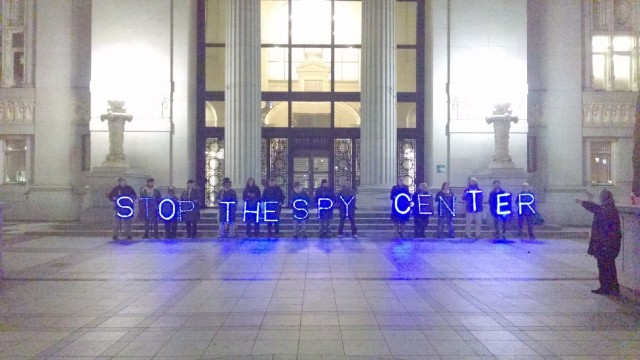Original post (Tuesday): Oakland Mayor Jean Quan said she'd like to see the city scale back its planned creation of a surveillance system that civil liberties advocates and many community groups oppose.
The controversial Domain Awareness Center would use Department of Homeland Security funds to set up a citywide surveillance network, combining live video and data feeds from the Port of Oakland and other sources that could eventually include license-plate readers, traffic cameras and public schools.
The city has touted the center as a way of preparing for emergencies and fighting crime. Some reports have questioned whether the system could actually be used to combat crime and whether the city is simply using that rationale to win support for the project. Domain Awareness Center opponents have pointed to the danger the system could be used to track residents' daily activities and that it could have a disproportionate impact on people of color living in East and West Oakland.
The City Council is scheduled to consider the center Tuesday night. In an open letter released Tuesday afternoon, Quan argues the city does indeed need a centralized information system to help respond to emergencies like the 1989 Loma Prieta earthquake and the 1991 East Bay Hills firestorm. She cites the example of Oakland police Officer John Grubensky, who died while trying to lead residents to safety during the fire:
... As they fled downhill on Charing Cross Road, the officer and ten residents became stuck where the road had narrowed and become impassable with abandoned cars. All eleven people perished. However, they might have survived if the officer had better, quicker, broader access to information about the safest routes out. This tragic toll is just one example that underscores the urgency of our work to prepare and organize our resources to more effectively respond when another disaster strikes.
But Quan also notes the high level of discontent expressed at a series of public meetings on the Domain Awareness Center and suggests a change in approach: first, a new effort to draft policies that would address concerns about privacy and who has access to the system's data; and second, scaling back the launch of the center so that it operates at first only on Port of Oakland property:
... We will hold off on the aspects of the project that would include cameras on city streets. We will return to those elements separately, and only when the advisory committee is satisfied that the safeguards we’ve built together with the community are sturdy and enforceable. Any new camera systems, or any other additions to the Center, would have to be proposed separately and go to our City Council in a public process.
For now, Quan's proposal is just that — an idea that the City Council will need to go along with.
Linda Lye, a lawyer with the American Civil Liberties Union of Northern California, told the San Francisco Chronicle's Will Kane she thinks Quan's move is a step in the right direction but the city needs to go further to alleviate concern over the center:
While she was pleased to hear Quan was asking the City Council to slow down the process and limit the surveillance to just the port, Lye worried the city would still reach the same result.
“We endorse the approach of dialing it back, but we want to make sure that the system truly reflects that principle,” Lye said. “One of the main concerns with surveillance systems is mission creep: when it is advertised for one purpose and then used for something else.”
Here's Quan's "open letter":
